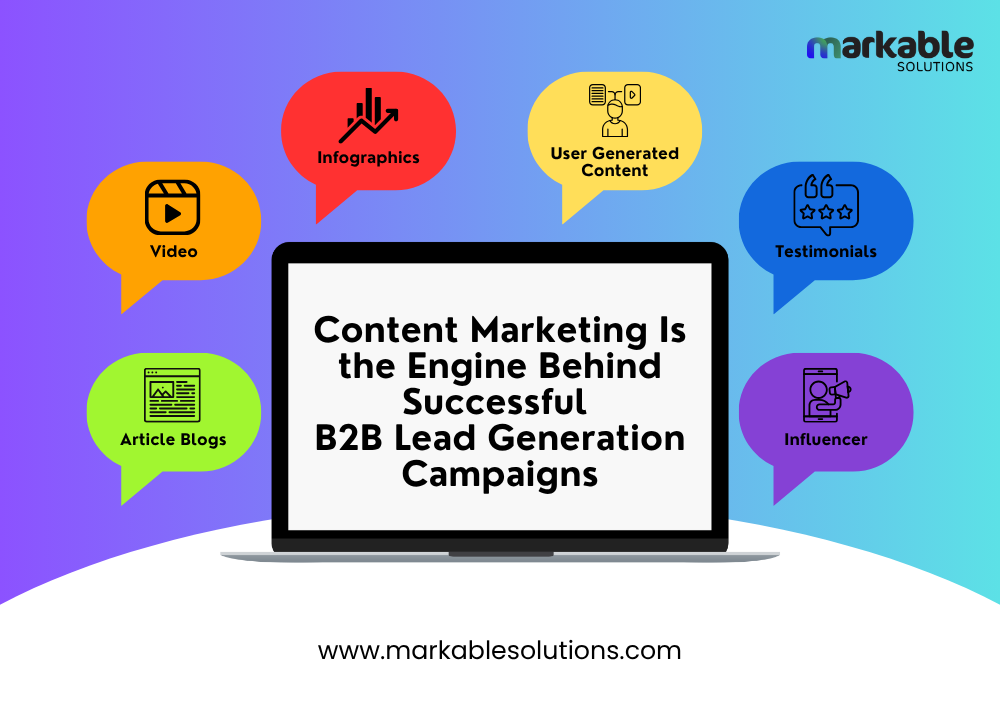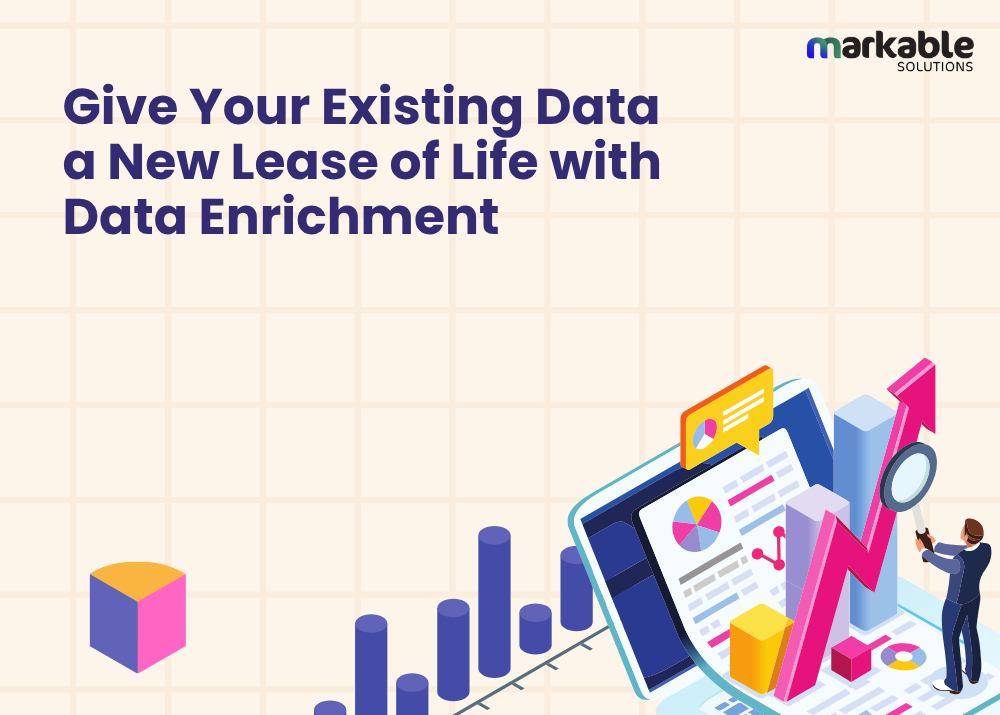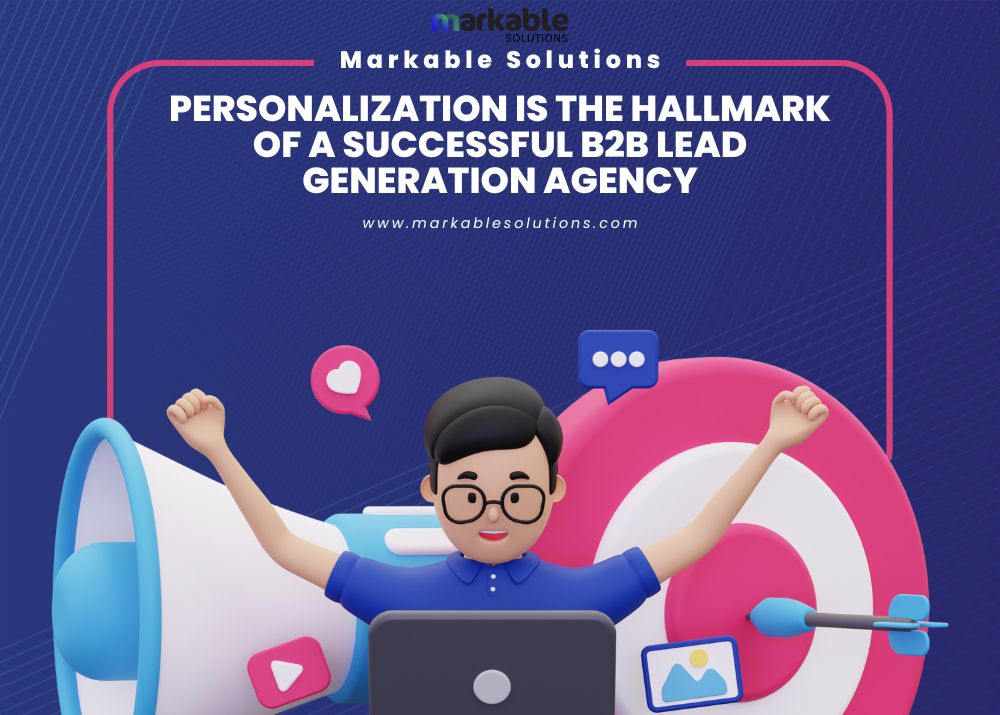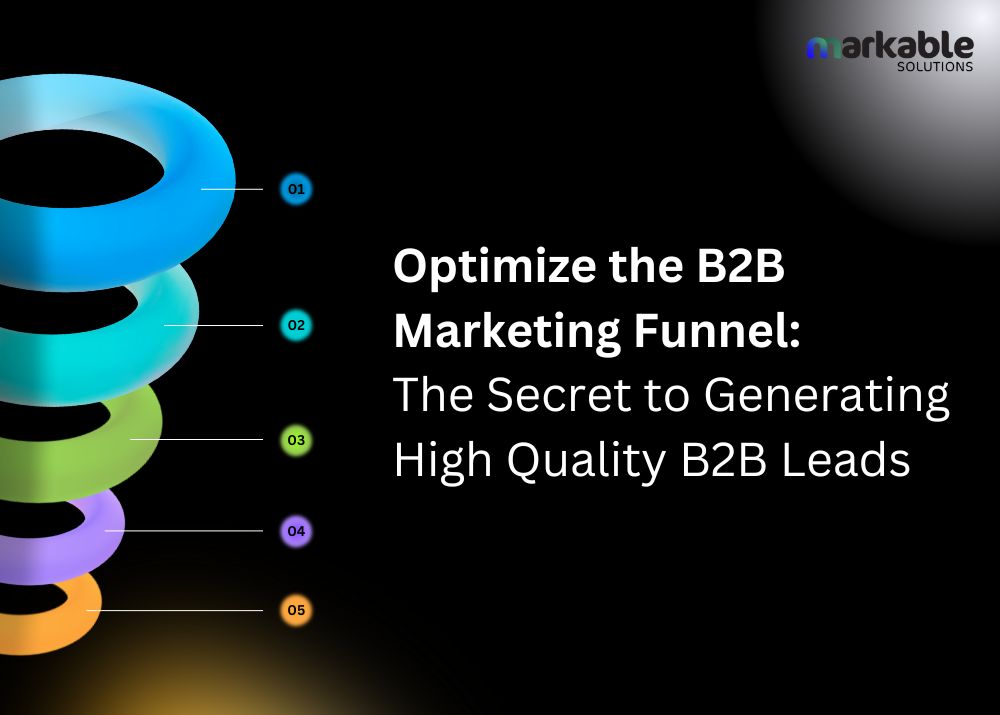
B2B lead generation targets a broad target audience comprising the ideal customer profiles (ICPs), while account-based marketing (ABM) focuses on niche audiences or high-value accounts targeting the ICPs. So, which strategy is best for generating high-quality B2B leads? Is it prudent to adopt a mixed approach or launch them as a standalone strategy to gain a high ROI? Let’s answer these critical questions and understand which process would deliver the best results for your B2B business in 2025.
What is Lead Generation and Account-based Marketing?
A lead generation strategy focuses on a broad target audience and involves personalized communication based on audience segmentation. It is a uniform approach that targets all the leads using parameters such as title, demography, industry, etc. ABM targets a more specific target audience within high-value accounts and interacts with them with customized content likely to resonate with them at every stage of the buyer journey and convert them into customers. For instance, a SaaS company can target sales managers with a lead generation campaign for its advanced cloud-based CRM software in the e-commerce industry. The account-based marketing strategy will focus on key decision-makers, such as sales directors of the top 10 e-commerce companies in the particular region, and customize the messages to engage with them.
Lead Generation Vs. Account-Based Marketing
B2B lead generation is a layered process focused on targeting a broad target audience. On the contrary, account-based marketing lets businesses concentrate on selective accounts. The former focuses both on quantity and quality by using AI-powered technology leveraged by the experts. ABM is more focused on quality rather than lead quantity, concentrating on particular accounts and adopting a personalized engagement approach to connect with decision-makers within these key accounts. As a reliable lead-generation agency in the U.S., we have helped many companies implement lead-generation strategies and account-based marketing programs to generate market-qualified and sales-qualified leads.
Lead Generation and ABM- Key Differences
Target Audience: Lead generation is about targeting a large audience and adopting a uniform approach at the different stages of the buyer journey. It also integrates personalization to ensure the messages resonate well with the target audience. The communication is customized to encourage the recipients to partake in the conversation. It targets a large number of leads and then engages them by nurturing them with content that highlights their requirements and pain points and offers solutions to them. ABM targets a relatively small audience and focuses on engaging selective high-value accounts, tailoring the content based on their feedback and metrics obtained from the campaign. The stark contrast between lead generation and ABM lies in the target audience and the approach it follows to connect with them.
Personalization: Though lead generation is about casting a wide net on the target audience, evolving customer demands have urged businesses to integrate personalization to ensure the success of lead generation campaigns. Data helps businesses understand their audience better and segment it to create personalized audience segments, allowing them to rely on customized messages to encourage a response. Lead generation reaches out to the target audience with content comprising blogs, articles, thought leadership articles, website content, social media posts, etc., and attracts them to the business. In account-based marketing, it’s more about using marketing and sales intelligence to target a specific audience and cater to its unique requirements. The content is tailored to the particular needs of the accounts, so it integrates personalization at a granular level. Moreover, the outreach channels aim to form one-on-one communication with prospective buyers with personalized email campaigns, SDR-initiated telemarketing, and event marketing.
Domain: Lead generation is more of a marketing domain as it attracts the target audience with relevant, engaging, and unique content that draws the prospective buyers’ attention and moves them down the B2B marketing funnel. Lead generation is targeted towards a large audience from which qualified leads move ahead in the buyer journey and are eventually handed over to the sales teams for further communication and deal closure. Account-based marketing is laser-targeted from the beginning and requires the marketing and sales team to work in perfect tandem to engage with the niche audience in high-value accounts. They anticipate the audience’s requirements with the help of data and target them with highly personalized communication.
Lead Generation and ABM- Two sides of the same coin?
Though lead Generation and ABM have distinct approaches toward the target audience, they tread the common path of driving high-quality leads in the sales funnel. They are the two sides of the same coin, and the ultimate goal is to generate high-quality B2B leads. Lead generation is easier to scale as it targets a large number of prospects, while ABM targets selective accounts. Instead of implementing either of the strategies, it would be advisable to adopt a mix of both strategies. It will help integrate a comprehensive approach towards generating leads. You can run lead generation and account-based marketing campaigns simultaneously to generate high-quality leads. It would also be cost-effective to target leads on a large scale with a generic yet personalized approach through lead generation programs, and to communicate with high-value accounts using hyper-personalized ABM campaigns that would continue to fuel business growth.
Lead generation and ABM- Rely on Experts
You can trust Markable Solutions to implement robust B2B lead generation campaigns and account-based marketing services. Depending on your requirements, we implement strategies that drive high-quality B2B leads into the marketing funnel. Contact us for a free consultation and learn how we can help you implement successful lead generation and ABM campaigns and ensure a steady sales pipeline.





